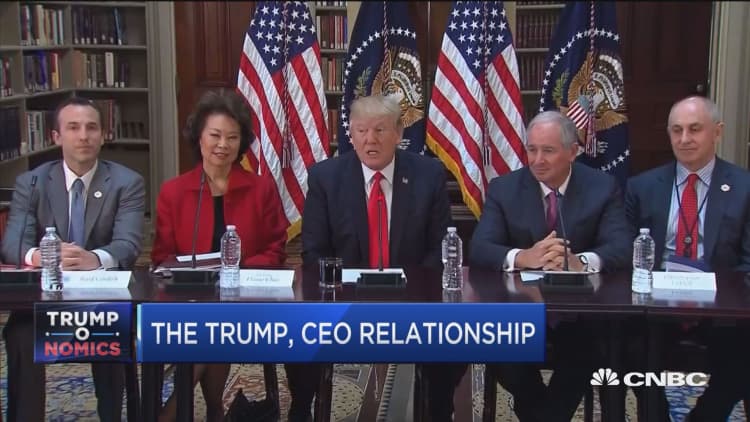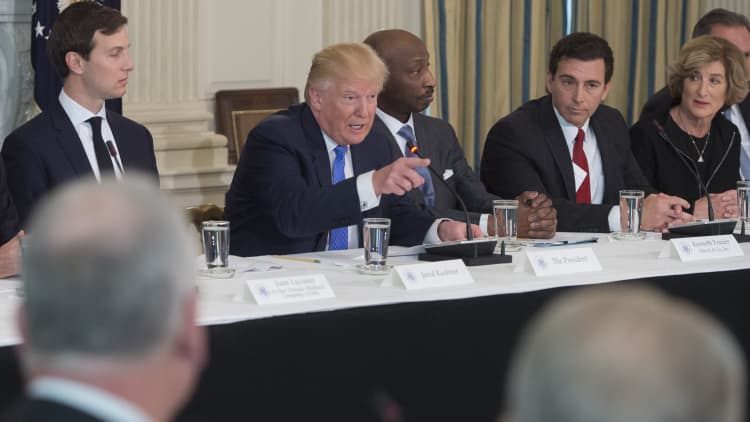
Dozens of CEOs distanced themselves from President Donald Trump last week, many taking an explicitly moral stand against the president for his heavily criticized remarks after violent protests in Charlottesville, Virginia.
But not all business leaders think the mass exodus was the right decision. Steve Odland, former CEO of Office Depot, argued on CNBC's "Squawk Alley" that business leaders should do their best to separate politics from policy, and should remain as engaged as they can with the White House.
"The business community drives our economy," Odland told CNBC on Tuesday. "All the issues that were in place when the councils were established still are issues before us today, and these CEOs need to stay engaged, but they have to stay away from the politics."
"CEOs have many constituents: Customers, employees, owners. And we as a country are split politically, and those constituents are split politically," Odland said. "So, by supporting one aspect of politics you're by definition going against some of your other constituents. You have to be very careful as a CEO."
While Odland stressed access over action, former Medtronic CEO Bill George told CNBC he's "proud of" the CEOs for their response.
"I think it was a very dramatic statement. We've not seen anything like this in the last 50 years," George said on "Squawk Box." "No one should associate with the KKK, white supremacists, neo-Nazis — these things are not a part of American society you want to ever encourage."
"CEOs are pragmatists, I agree with Steve on that. But I also think there is a moral line with their employees and their customers, and they want to hear the CEOs standing up and being counted on very important issues for them," George said.
George also said the councils were hardly the most effective way for CEOs to engage with the president, describing the monthly council meetings as little more than "photo ops."
"They'll continue to work with the president, but they'll do so individually. They don't need a council to do that, where they sit around a big table and nothing ever happens. They want to get something done," George said.
The Aug. 11 and 12 protests, organized by white supremacists and attended by KKK members and neo-Nazis, led to the death of one counterprotester and dozens of injuries. Trump's response on Aug. 12 offered condemnation "on many sides," a rhetorical tack that led Kenneth Frazier, CEO of Merck, to resign from the president's manufacturing council.
Frazier's initiative opened the floodgates, and a steady stream of CEOs resigned over the following days.
At a news conference the following Tuesday, Trump said the protests included "very fine people on both sides."
Explicitly responding to Trump's statements about Charlottesville, the 17 CEOs of the Strategic and Policy Forum agreed to disband the group the next day. Shortly after, Trump tweeted that he was ending both of his administration's councils of CEOs.
Odland said weighing in on politics as a CEO is "fraught with risk" because of the chance of alienating a constituency among one's customers or employees.
"We still have to stay engaged, and we've got to find the productive roles regardless of who's in the office. Whether it's somebody with a red shirt or somebody with a blue shirt, CEOs need to be agnostic about that and focused on what is good for America," Odland said.
"I hope that CEOs get back engaged and do so productively, because America needs them."
WATCH: NYT's Jim Stewart on CEOs getting political



